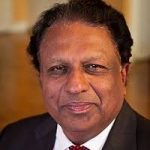Columns | Guest Column
Where Hagia Sophia and Twenty20 Matter
Political parties in Kerala unable to influence public opinion
 TP Sreenivasan
TP Sreenivasan
 TP Sreenivasan
22 Dec, 2020
TP Sreenivasan
22 Dec, 2020
Keralites are traditionally internationalists. They reach every nook and corner of the earth, and even those who stay back home are swayed by ideologies and events and personalities anywhere in the world. I remember the days when the communists here were supposed to be holding up their open umbrellas when it rained in Moscow. Portraits of Che Guevara and Fidel Castro share walls with gods, goddesses and other religious and political symbols. Shops were closed in protest when Saddam Hussein was killed by the Americans. Modern Latin American heroes and little-known poets from around the world are favourites in Kerala.
Kerala scholars discuss postmodernism with such intensity that it led to an observer to conclude that Neruda was the greatest poet and Marquez, the greatest novelist, of Kerala. Maradona spent a night in a hotel in Kerala and his room was turned into a museum. Legend has it that Neil Armstrong met a Nair on the moon, running a tea shop, but when another astronaut went to look for him, he was told that Nair had moved to Mars, waiting for the first man to land on Mars.
No wonder then that Hagia Sophia, also called Church of the Divine Wisdom, which was built in Istanbul as a Christian church, but became a mosque, a museum and a mosque again, decked with lavish mosaics of Christianity and inscriptions of Islam, became a decisive factor in the recent local bodies’ election in Kerala. The state, which prides itself in its Christian and Islamic tradition, got divided on the issue of a single monument in distant Turkey.
The elections were a luxury Kerala could not afford in the midst of managing the pandemic, many scandals involving every imaginable crime from gold smuggling through diplomatic bags to murder. The electioneering looked like a super-spreader, but it will take a few days to know whether it caused any spike. But the results went in favour of the ruling Left Democratic Front (LDF), despite the charges of corruption and maladministration. The three major coalitions claimed that each of them had improved their vote bases, but there is no doubt that the LDF won a clear victory.
The post-mortem produced a big surprise. In Kerala, we do not cast votes, we vote our castes, though loyalties keep shifting. The vote base of the United Democratic Front (UDF) includes the Muslim League, and this support became stronger in recent years after the Bharatiya Janata Party (BJP) began to grow in the state. In the last parliamentary elections, UDF won 19 of the 20 seats with the solid support of the Christians, who dreaded BJP. But this time, the Christian voters shifted mysteriously to LDF. The reason for this has been identified as Islamophobia, which is a new phenomenon in Kerala. The strange thing is that it was not only Muslim activities in Kerala or India that instilled fear among the Christians, but the conversion of a museum, Hagia Sophia, into a mosque in Turkey and fundamentalist terrorist attacks in France and Austria. In Kerala itself, the alleged ‘love jihad’ and the prominence of Muslim League in UDF became an issue. The discovery of Keralites in terror groups abroad must have been another reason for the change.
Caught between BJP and the Muslim League, the Christians had no other choice but to support LDF. Whether the trend will continue during the next state elections early next year is unclear, but Kerala’s politics being determined by the developments abroad is a new phenomenon. That reduces the ability of the political parties in the country to influence public opinion. This is indeed a new danger to democracy as we have no control over fundamentalists in distant lands.
A positive phenomenon which has emerged in Kerala is an experiment launched five years ago by a corporate body called Kitex to transform a village near Kochi named Kizhkkambalam by providing a clean and efficient administration, supplementing the allocated funds from the government with CSR funds. In the last five years, Kizhkkambalam has become a model village with modern amenities. This time, Sabu Jacob, the CEO of Kitex, put up his party (named ‘Twenty20’) candidates in four more villages and won them. The political parties are alarmed that an alternative to conventional politics has emerged. They are agitated about this existential threat to them. Jacob has now become a legend in Kerala and he has announced that he will put up his candidates for the state elections next year. If he remains independent and puts up reputed candidates, he may become a force to reckon with in Kerala politics and change the face of the state.
The political parties are up in arms over this new regime as it will deprive them of their livelihood. Democracy without political parties is a disaster for them. They would like the rich to pay them the money to do good for the people rather than give it directly to the people by way of better amenities. The reality today is that the rich buy influence from politicians rather than from the people. Therefore, decrying the rich for influencing the population through gifts is to be expected by all politicians. They say this is subversion of democracy by money power, which is nothing different from what is happening today. There are some other models for development also in the making, but none has succeeded as Twenty20 has. A new dawn of development, even in a few villages, should be welcomed. Let the best man win.
About The Author
TP Sreenivasan is a former diplomat
More Columns
Bihar: On the Road to Progress Open Avenues
The Bihar Model: Balancing Governance, Growth and Inclusion Open Avenues
Caution: Contents May Be Delicious V Shoba